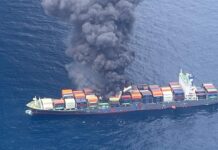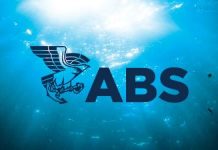
Shippers in Europe are going out of business as erratic deliveries of cargo containers leaves production lines stranded and European exporters, like their US counterparts, say that lines, in their rush to get empty boxes back to Asia, are not picking up export cargo.
[s2If is_user_logged_in()]According to the European Freight Forwarders Association (CLECAT) and the European Shippers’ Council (ESC) carriers have cut services and managed capacity as the pandemic spread across Europe without consideration for their customers and then raised rates as a surge in cargo in the second quarter found a container positioning imbalance and a lack of vessel capacity.

“It is easy for the lines to take out capacity, but it seems it’s not so easy to bring it back, complained Nicolette van der Jagt, the CLECAT director general. She went on to say that while the lines enjoyed benefits such as low tonnage tax regimes and state aid it is unfair on other parties in the supply chain that do not enjoy these benefits.
In a joint letter to the European Commission’s Competition Directorate CLECAT and the ESC have told the EC of instances where carriers are “violating existing contracts” and setting “unreasonable conditions” for the acceptance of export cargo, while also raising westbound rates on the Asia to Europe trades to levels far higher than the agreed contracts.
EC officials are expected to meet with the two shipper groups early this month to discuss possible violations, with some shippers considering legal action.
An EC spokeswoman told Container News, “We have received the letter and we will reply in due course. The European Commission will continue monitoring the developments in the sector of liner shipping.”
Among other claims van der Jagt added that some alliances enjoy a greater than 30% market share in the Asia to Europe trades, the Consortia Block Exemption Regulation (CBER) stipulates that alliances should not have a market share greater than 30%.
According to van der Jagt many small and medium sized manufacturers and freight forwarders across Europe are suffering from the lack of service and it is pushing them to the brink of collapse.
ESC policy manager for maritime transport Jordi Espin said, “The letter was sent now because the market distortion situation is getting worse and worse and it gives no signals of short-term recovery. Shippers’, BCOs [beneficial cargo owners] and freight forwarders may have had patience to get the market into the right shape, but currently we are at a turning point that is clearly showing market fatigue signals, and unless there is a market pattern change the consequences will be a disaster.”
Espin believes that the EU must now look at the current supply chain tensions and what they mean for manufacturers, importers and exporters alike.
He added the EU and the EC must see “The direct impact of the CBER onto the whole market set up. We urge the European Commission to take actions the same way other Authorities have done in other parts of the world to get the market to a normal level playing field set up.”[/s2If]
[s2If !is_user_logged_in()]Please login or register to read the rest of the story[/s2If]
Nick Savvides
Managing Editor








